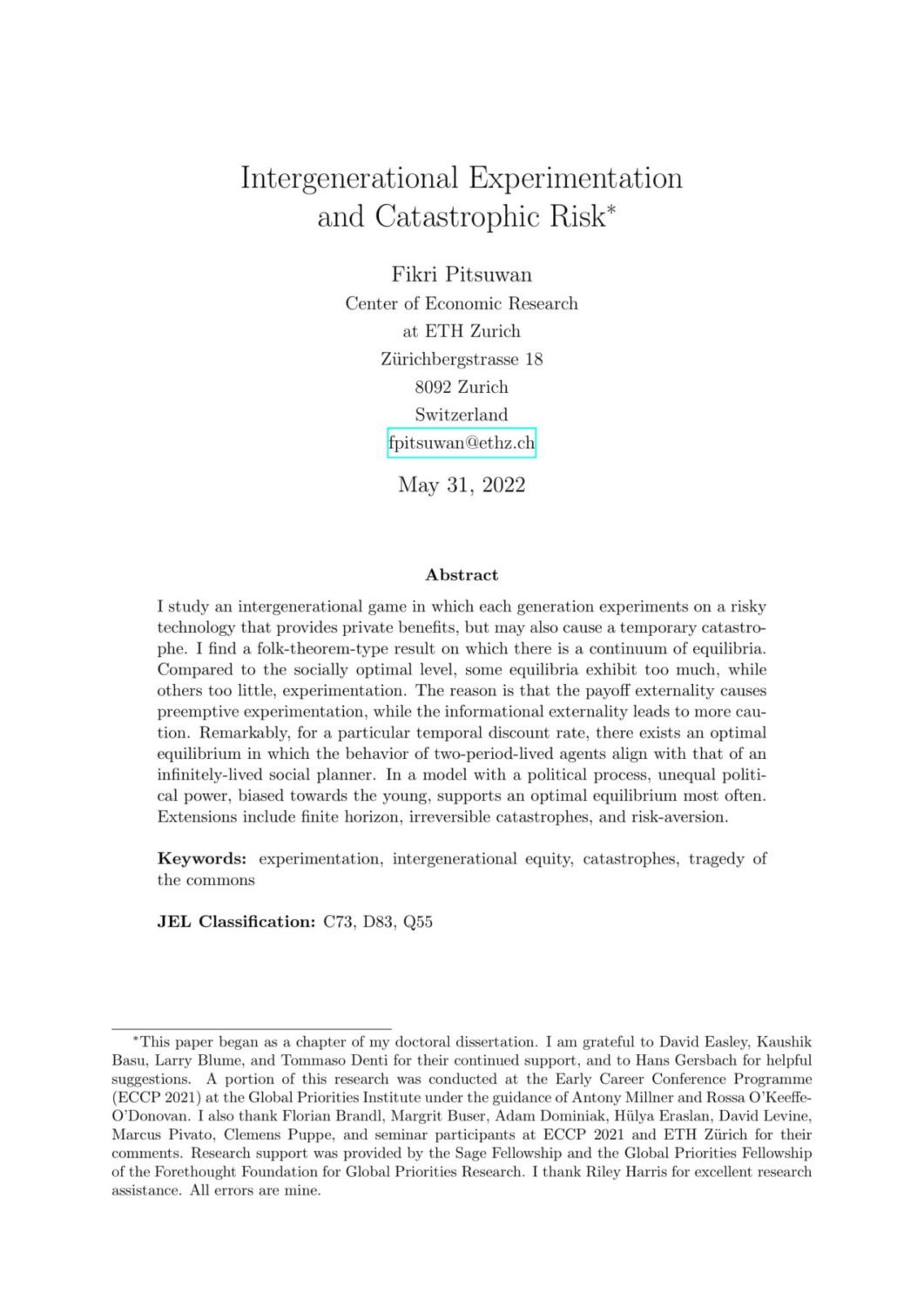Intergenerational experimentation and catastrophic risk
Fikri Pitsuwan (Center of Economic Research, ETH Zurich)
GPI Working Paper No. 6 - 2022
I study an intergenerational game in which each generation experiments on a risky technology that provides private benefits, but may also cause a temporary catastrophe. I find a folk-theorem-type result on which there is a continuum of equilibria. Compared to the socially optimal level, some equilibria exhibit too much, while others too little, experimentation. The reason is that the payoff externality causes preemptive experimentation, while the informational externality leads to more caution. Remarkably, for a particular temporal discount rate, there exists an optimal equilibrium in which the behavior of two-period-lived agents align with that of an infinitely-lived social planner. In a model with a political process, unequal political power, biased towards the young, supports an optimal equilibrium most often. Extensions include finite horizon, irreversible catastrophes, and risk-aversion.
Other working papers
On the desire to make a difference – Hilary Greaves, William MacAskill, Andreas Mogensen and Teruji Thomas (Global Priorities Institute, University of Oxford)
True benevolence is, most fundamentally, a desire that the world be better. It is natural and common, however, to frame thinking about benevolence indirectly, in terms of a desire to make a difference to how good the world is. This would be an innocuous shift if desires to make a difference were extensionally equivalent to desires that the world be better. This paper shows that at least on some common ways of making a “desire to make a difference” precise, this extensional equivalence fails.
It Only Takes One: The Psychology of Unilateral Decisions – Joshua Lewis (New York University) et al.
Sometimes, one decision can guarantee that a risky event will happen. For instance, it only took one team of researchers to synthesize and publish the horsepox genome, thus imposing its publication even though other researchers might have refrained for biosecurity reasons. We examine cases where everybody who can impose a given event has the same goal but different information about whether the event furthers that goal. …
Intergenerational equity under catastrophic climate change – Aurélie Méjean (CNRS, Paris), Antonin Pottier (EHESS, CIRED, Paris), Stéphane Zuber (CNRS, Paris) and Marc Fleurbaey (CNRS, Paris School of Economics)
Climate change raises the issue of intergenerational equity. As climate change threatens irreversible and dangerous impacts, possibly leading to extinction, the most relevant trade-off may not be between present and future consumption, but between present consumption and the mere existence of future generations. To investigate this trade-off, we build an integrated assessment model that explicitly accounts for the risk of extinction of future generations…

